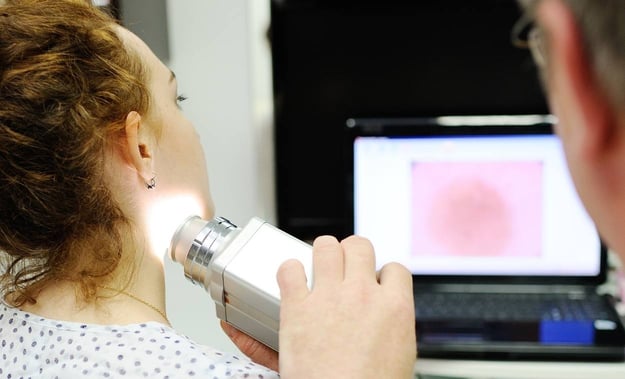Melanoma Skin Cancer Care in the Willamette Valley
Melanoma is the most serious type of cancer of the skin. It is treated differently from nonmelanoma skin cancers. Learn more about nonmelanoma skin cancers.
In some parts of the world, especially among Western countries, melanoma is becoming more common every year. In the United States, for example, the percentage of people who develop melanoma has more than doubled in the past 30 years.
Our team of skin cancer experts at WVCI are located in Albany, Corvallis, Eugene, Florence, Lincoln City, and Newport, Oregon. We are here to inform you about your melanoma skin cancer and provide you with personalized treatment options.
What Happens After a Melanoma Diagnosis?
A melanoma diagnosis can leave you wondering what happens next. We know this is a difficult time, but you can do this— and the skin cancer care specialists at WVCI are ready to help you every step of the way. We’re here to answer questions and connect you with the resources you need.
Read our guide for tips on where you go from here.
Signs & Symptoms of Melanoma

Usually, the first sign of melanoma is a new spot on the skin, or a change in the shape, size, or color of an existing mole. However, it is not uncommon for melanoma to occur on otherwise normal-appearing skin.
Therefore, not only do you need to become familiar with the signs and symptoms of melanoma and other skin cancers, but you should also become familiar with your own skin. Monthly skin checks can help reveal anything that appears out of the ordinary. If you come across any suspicious spots on your skin, you should have them evaluated right away. The sooner melanoma is diagnosed, the better chance of a positive treatment outcome.
Detecting & Diagnosing Melanoma

If the doctor suspects that a spot on the skin is melanoma, the patient will need to have a biopsy. A biopsy is the only way to make a definite diagnosis. In this procedure, the doctor tries to remove all of the suspicious growth. If the growth is too large to be removed entirely, the doctor removes a sample of the tissue. The doctor will never shave off or cauterize a growth that might be melanoma.
A biopsy can usually be done in the doctor’s office using local anesthesia. A pathologist then examines the tissue under a microscope to check for cancer cells. Sometimes it is helpful for more than one pathologist to check the tissue for cancer cells.
Staging Melanoma

If the diagnosis is melanoma, the doctor needs to learn the extent, or stage, of the disease before planning treatment. Staging is a careful attempt to learn how thick the tumor is, how deeply the melanoma has invaded the skin, and whether melanoma cells have spread to nearby lymph nodes or other parts of the body.
Melanoma Skin Cancer Prevention

Certain factors may put you at a higher risk of developing melanoma skin cancer. While some of these factors, like exposure to UV rays, can be controlled, others can not. However, the more you know about the risks associated with melanoma, the more proactive you can be in protecting yourself.
Melanoma Treatment Options
Different types of treatment are available for patients with melanoma. These are the five treatment options commonly used for melanoma depending on the stage of the cancer. Those include:
- Surgery
- Chemotherapy
- Radiation therapy
- Biologic therapy
- Targeted therapy




.jpg)





